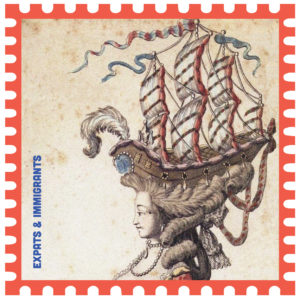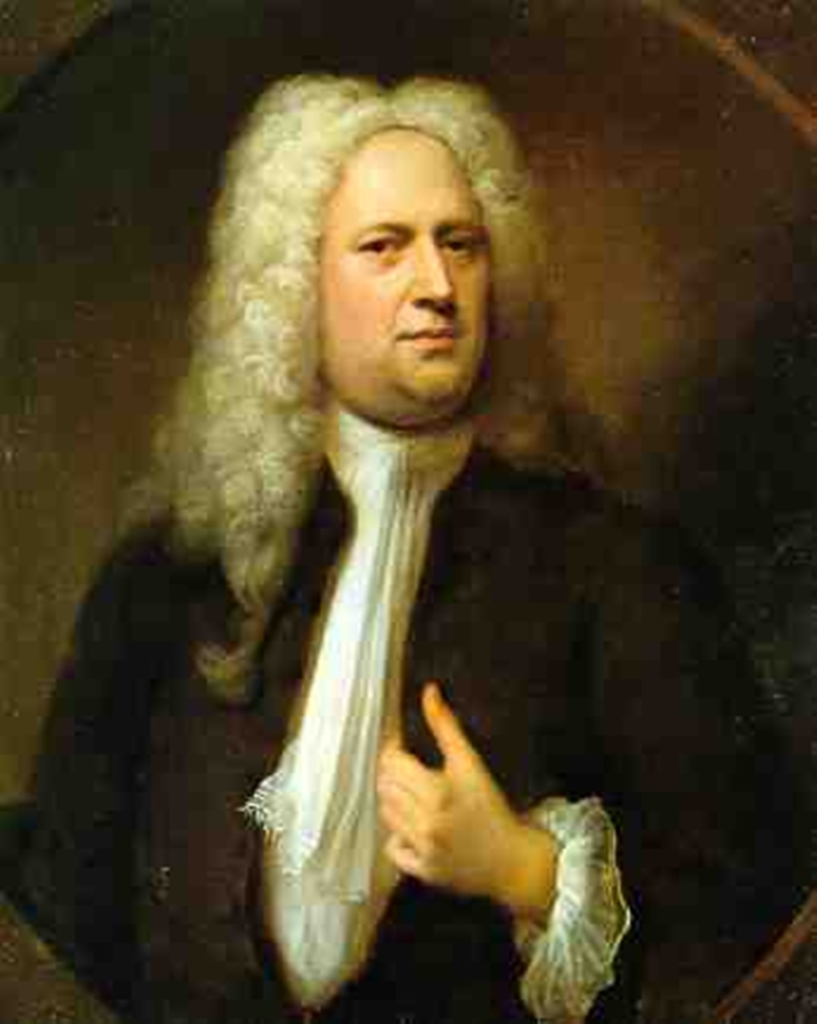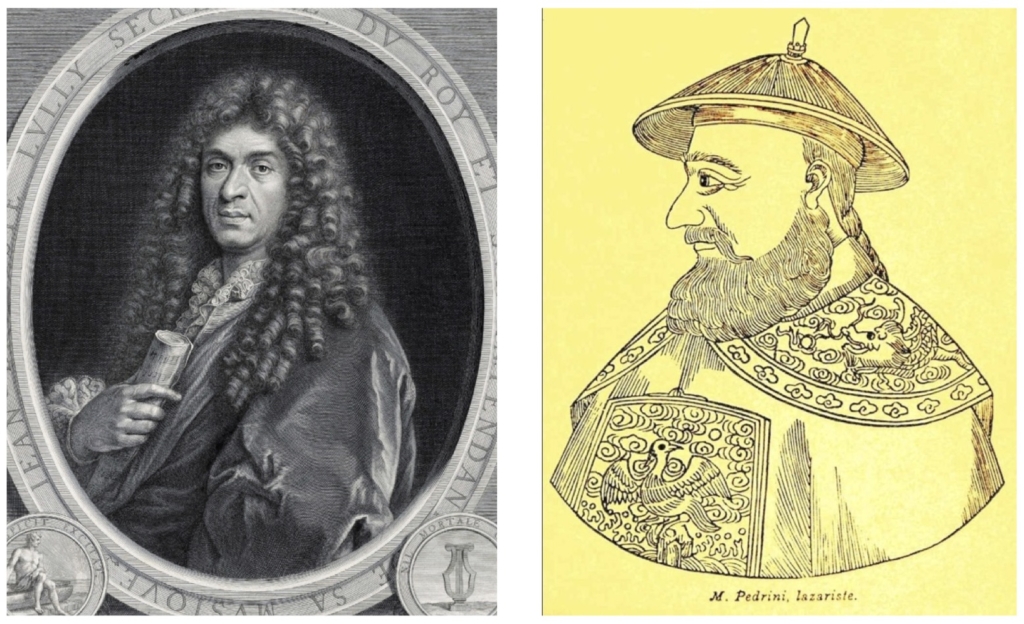Expats & Immigrants—
After 10 months of Covid restrictions, sometimes the walls seem to close in pretty tight. I’m sure many of us daydream about upping stakes and bolting. Lucky for us, Tempesta di Mare’s here! Their upcoming show, Expats & Immigrants, lets us run away vicariously with music by baroque composers who did just that.

Handel, Lully, Barsanti, Bon, Araujo, Torrejón, and Pedrini
Handel, Lully, Barsanti, Bon, Araujo, Torrejón, and Pedrini: all of them ended up far from where they started. It wasn’t the normal thing at the time, by the way. In the 17th and 18th centuries, people stuck close to home. Even famous composers with big reputations didn’t move far. Bach spent his life within the periphery of a few cities in northern Germany. Telemann did the same, except for one blowout trip to Paris.
But these brave souls defied language differences, national prejudices, and horribly uncomfortable travel conditions to find someplace where they could live their best lives. What they brought to their new homes, and how their new homes changed them in return is well worth consideration.
From Händel to Handel
For some, like Georg Friederich Händel, immigration brought fame, fortune and a whole new identity. Born in northern Germany into what is thought to have been a family unimpressed by his musical ambitions, Händel cut loose in his 20s, first staying in Rome and Naples to soak up Italian music and then transplanting to England where opera fans adored him.

He never looked back as a titan of the London stage, a confidant of royals and a pillar of British culture. He became George Frideric Handel when an Act of Parliament naturalized him in 1727; when he died in 1759, he was buried in Westminster Cathedral where his anthem, Zadok the Priest, has been played at every royal coronation since George II’s.
Immigrants get the job done
Jean-Baptiste Lully’s rise from poor Tuscan peasant (Giovanni Battista Lulli) to fabulous French superstar was even more meteoric. Lully became Louis XVI’s favorite composer, trusted henchman, and a leader in the Sun King’s court.

The French style in music, dance, musical theater and opera that Lully helped develop became a point of proud national identity for a growing world power. That the person responsible for so much French grace, elegance and je ne sais quoi was a famously irascible and combative foreigner shows that once again, immigrants get the job done.

For others, though, emigration wasn’t about fame. Anna Bon, educated in Venice, forged a music career by moving to places with less gender discrimination than home. She spent several productive years in Bayreuth, Bavaria, where the Margravine Wilhemine—sister of Prussia’s Frederick the Great—was herself a composer.
Juan de Araujo and Tomás de Torrejón y Velasco lived long and productive lives in Peru and Bolivia, bringing the musical forms of their native Spain to avid cultural communities in the New World. And emigration didn’t just give Teodorico Pedrini a change of scene, it gave him the chance to change the world. Pedrini, a Vincentian priest and musician who served as a missionary in Beijing for forty years, was one of the first people to introduce European music to China and wrote the first treatise on western music theory to be published in China.
Big lives, big personalities, big deeds (Pedrini’s voyage to China alone took 9 years). But Francesco Barsanti’s more modestly reinvented life may be particularly appealing now during the pandemic, when so many of us are sustained by smaller pleasures.
Heading for London
Barsanti left Tuscany in 1714 and, as did many other musicians and craftspeople, headed for London, which had become one of the most active musical communities in 18th-century Europe.
In London—and Edinburgh—Barsanti settled into the familiar musician’s patchwork of gig work, teaching, and his own writing. His compositions include recorder sonatas; concerti grossi; Scottish folk tunes arranged—and credibly so—for non-folk performers; vocal motets related to renaissance music that he may have discovered in London’s recently-founded Society of Ancient Music. Perhaps he was curious about his new home. It does not take a big stretch of the imagination to see his music as a love letter to it, too.

Barsanti lived his to-all-appearances quiet, interesting, busy, and fulfilling life more or less under the radar of music world gossip. His daughter—whose mother was Scottish—grew up to be Jenny Barsanti, a popular singer and actress at Covent Garden and Drury Lane. Observers late in his life noted the tender regard between the old composer and his daughter. He lived to 85; Jenny apparently attended him in his decline. His obituary noted him as composer of “learned and elegant music” and as possessing an “integrity and social disposition [that] endeared him to all his acquaintance” (obituary quoted in Cameron and Talbot, below). A small life but one well-lived, that seems to have been Francesco Barsanti’s.
Sometimes, to quote the motivational poster, it really is the journey, not the destination.
Many thanks to this excellent article (which includes Barsanti’s obituary from the Morning Chronicle and London Advertiser, April 30, 1775, and many other fascinating facts and insights): Jasmin Cameron and Michael Talbot, “A Many-sided Musician: The Life of Francesco Barsanti (c. 1690-1775) Revisited,” Recercare, vol. 25, no 1/2 (2013), pp 95-154.
Anne Schuster Hunter is a writer, teacher, and art historian in Philadelphia. She conducts a creative writing workshop at Temple University Center City. Find out more: anneschusterhunter.com
